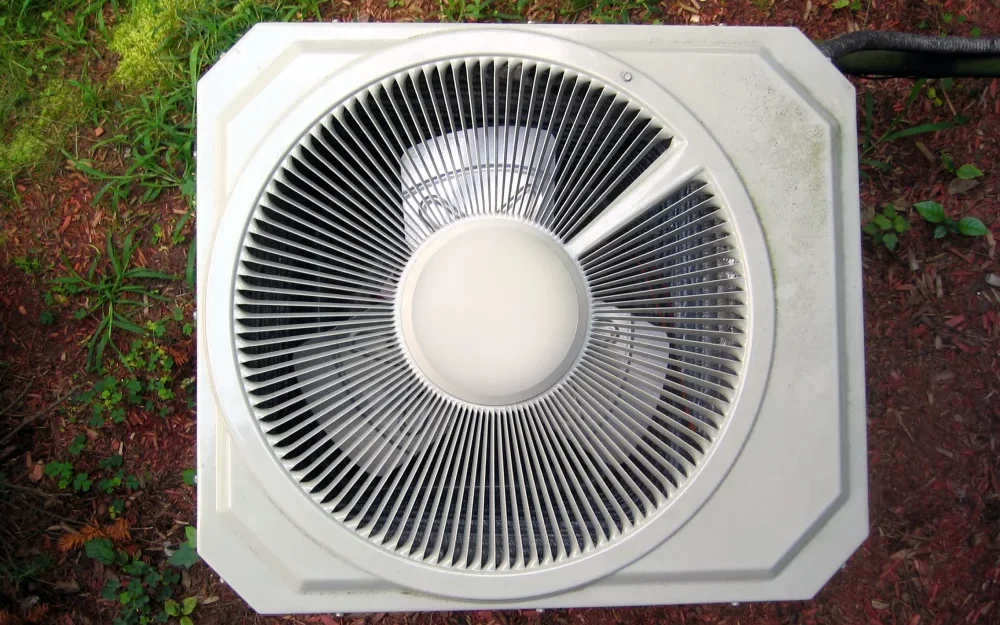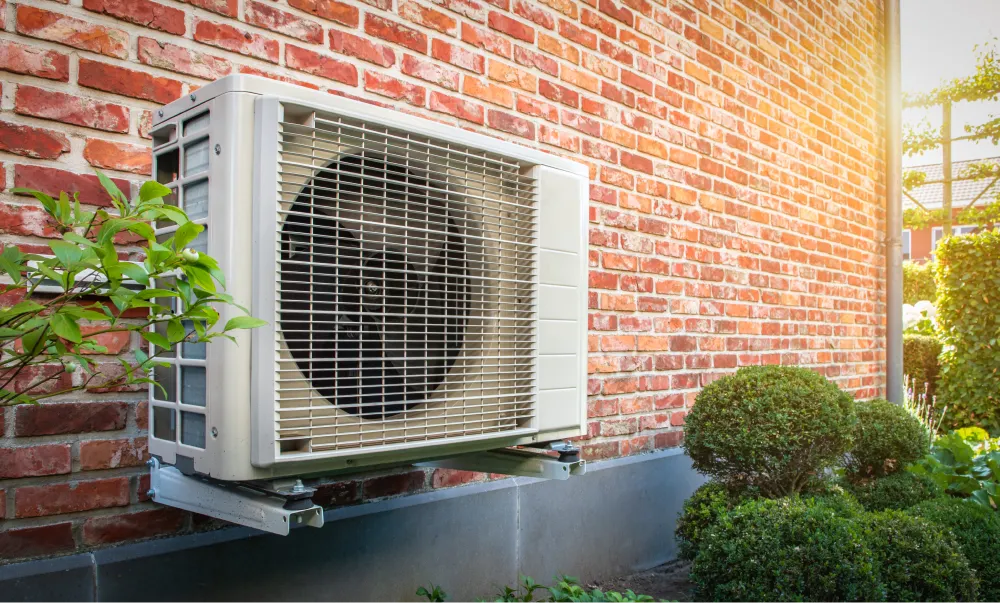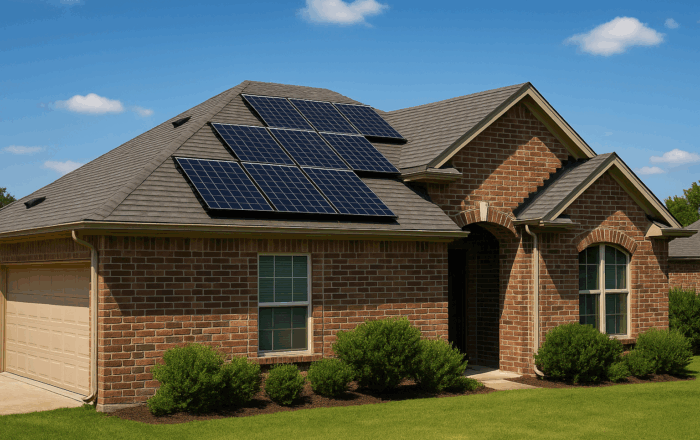Home Improvement Living in Texas
How Many Solar Panels Do You Need in Texas?
4 minute readHow to calculate the number of solar panels you need to power your Texas home
Home > BKV Energy Blog > All Posts > Heat Pumps vs Air Conditioners: Which Is Better?
4 minute read • Last update July 2025

Selecting the best heating, ventilation, and air conditioning (HVAC) system for your home usually involves choosing between a central air conditioner vs heat pump.
The primary difference is that a heat pump unit offers both heating and cooling capabilities. In contrast, air conditioning systems circulate cool air during the hotter months, but you’ll need a separate heating system during the winter. But, of course, there’s a little more to it than that.
Heat pumps are versatile HVAC solutions that operate by transferring heat from one location to another rather than generating cold air like traditional air conditioners.
Central air conditioning cooling systems regulate indoor temperature and humidity levels by dehumidifying and removing heat from indoor spaces and releasing cool air back into the room. As the name suggests, it’s a centralized system. As with heat pump installation, the main components comprise one indoor and one outdoor AC unit. However, unlike heat pumps, an air conditioning system is typically installed in conjunction with ductwork that runs throughout your home.
In general, heat pumps tend to be more energy efficient than an AC system due to their ability to transfer heat rather than generate it, which results in lower energy consumption. However, it’s essential to note that the efficiency of both heat pumps and air conditioners can vary based on factors such as:
While heat pumps often offer superior energy efficiency, it’s crucial to consider your specific circumstances when deciding which is best for your home.

Each solution offers distinct advantages, making it essential to weigh the differences carefully. Let’s delve into the pros and cons of heat pump vs AC systems to learn more about costs, efficiency, performance, and air quality.
| Heat Pump | Central Air | |
|---|---|---|
| Cost | Higher installation cost, lower operation cost | Lower installation cost, higher operation cost |
| Efficiency | Generally higher efficiency than central air | Generally lower efficiency than heat pumps |
| Performance | Heating and cooling | Cooling only |
| Air Quality | Effective when system is properly maintained | Effective when system is properly maintained |
Heat pumps have a higher initial cost compared to installing central air conditioning units, primarily due to their dual heating and cooling modes which require more complex technology. Air conditioners cost less upfront but use more energy, resulting in higher utility bills. Additionally, heat pump costs represent an all-in-one solution, whereas a supplementary heating system will be required in air-conditioned homes during colder months when outdoor temperatures drop.
Heat pumps offer significant energy savings in moderate climates where the differential between indoor and outdoor temperatures is not significant. However, efficiency levels can drop considerably in regions with extreme outside air temperature variations between the summer and winter seasons. Because air conditioners cool rather than heat, central AC systems don’t offer any additional advantages during cold spells. However, they are adept at keeping indoor temperatures up to 20 degrees cooler than the hot air outside.
Most modern air conditioning systems can run on various fuels, including natural gas or propane. However, heat pumps can’t function without electricity, making them more susceptible to failure during power outages. However, on the plus side, there is minimal noise when using a heat pump vs AC system, and because they utilize renewable heat sources from the air and ground, pumps are more environmentally friendly than systems that rely on fossil fuels.
Both central air systems and heat pump systems can effectively help manage indoor air quality when they are properly and regular maintained, and especially when they are paired with additional indoor air quality systems such as UV lights or advanced filtration setups.
Ultimately, choosing between a heat pump vs AC setup involves weighing up the pros and cons based on your home’s specific energy needs and goals. Here’s a quick summary, a couple of extra factors for consideration, and some recommendations to help you reach the right decision.
At BKVE, we understand the importance of energy solutions that don’t compromise on quality. Whether you’re choosing between an air conditioner vs heat pump, our range of low-cost, straightforward energy plans emphasize both energy efficiency and customer satisfaction.
We offer simple, fixed-rate electricity plans with fair prices, transparent communication, and no mind-boggling contracts. Contact us today to learn more or enter your zip code to find the best plan for your household.
Graham Lumley, Digital Marketing Manager at BKV Energy, leads digital and traditional marketing strategies, focusing on educating Texans about the state's deregulated energy market. With over 8 years of marketing experience, he creates content to help consumers understand and save on their energy bills, bringing a fresh and dynamic approach to the industry.

Home Improvement Living in Texas
How to calculate the number of solar panels you need to power your Texas home

Gardening in Texas presents unique challenges. Long, hot summers and frequent droughts mean that traditional landscaping often requires significant water
Get $50 off your electric bill!
Use code BKVEJOINUS50
Enter your zip code to shop BKV Energy's affordable, fixed-rate Texas electricity plans. Use the promo code for $50 off your electric bill.